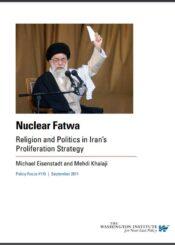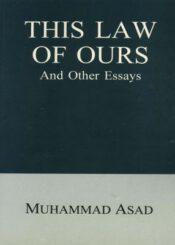Criterion of Credibility of Law
Criterion of Credibility of Law
0 Vote
223 View
By: Muhammad Taqi Misbah Yazdi In elucidating the Islamic political theory, we have made some discussions during the previous sessions and pointed out that the subject can be approached in two ways. One approach is argumentative [jadali], in which the fact that the addressee is a Muslim who adheres to Islam and Shi‘ism or believes in other ideological and moral fundamentals is disregarded; basic principles and foundations agreed upon by the two sides are taken into account as the principles and basis of discussion. By sticking to those preliminaries, the discussion continues till conclusion. The second approach is evidential [burhani] in which the discussion is made by organizing and presenting profound rational proofs and all groups of the discussion examine even the principles of the subject. By basing the argument on axiomatic truths, each one tries to present indisputable rational evidence. Evidence-oriented discussions are wearisome and appropriate for the academic and scientific circles. It must be noted, however, that our society has taken quantum leaps in cultural advancements and acquisition of knowledge. Today, the achievements of our youth, especially in the field of religious and political matters, are greater than those of some scholars in the past. As such, it is necessary to continuously engage in profound evidential discussions so as to improve the intellectual and cultural level of our society, particularly in areas related to the principles of the system and pristine Islamic doctrines, and acquire the capability to confront and respond to skepticism and not be influenced by others. At this point, we will try to present the subjects related to the principles of the subject under discussion in a simple manner devoid of intricate scientific and philosophical terms. We will also try to strengthen the rational roots of these doctrines in minds so as to make them more resilient to the prevailing wave of skepticism. The distinctive function of the government and political system is to support and guarantee the implementation of legal laws in society. The difference between moral laws and legal-political laws is that being ethical, they have no external force guaranteeing their implementation. Every person adheres to them based on his/her religious beliefs and orientation. Legal laws, on the other hand, have an external support guaranteeing their implementation. The salient feature of legal laws is that they are imposed on the people by society and the executive organ. Even if a person has no conviction in these laws, he is still duty-bound to follow them. In case of violation by individuals, the government is obliged to implement these laws by resorting to the use of naked force, and in case of necessity, even by the use of arms. After the victory of the Islamic Revolution, especially after the internal disturbances and arbitrary assassinations, government officials have consistently chanted the slogan of ‘the rule of law’. Even one of the initial years after the Revolution was called “Year of Law”, and till this day, all our presidents have pursued it. It must be taken into account that one of the main valuable slogans of the government is the implementation of law at the national level and prevention of its violations. It is, therefore, expedient that there must be a discussion about law and its credibility, and due response be given to relevant skepticism and questions. Scope and criterion of credibility of law The most common skeptical questions for many people are the following: To what extent can a law be binding and where does its credibility emanate from? Why is it necessary for individuals to submit to law? Which law has such absolute credibility to which one has to submit absolutely? Before continuing the discussion and addressing these questions, it is worth pointing out that according to us Muslims who adhere to the Islamic system and to whom the words of the Imam and the Supreme Leader are considered proof, there is no room for doubt and ambiguity that laws of the Islamic government—whether they are ratified bills of the Islamic Consultative Assembly, or laws ratified by cabinet and even circulars communicated from ministries to offices—are all binding, and according to the statement of the Imam (q) when he says that laws of the Islamic government are binding, we are bound to act upon them. I personally strive to faithfully observe the minutest details of laws and orders of the Islamic government including even those points that are contrary to my personal juristic view and edict. Observance of decrees and orders of the Islamic government and obedience to the wali al-amr is obligatory upon us, and we have no doubt in this regard. If we discuss the criterion of their credibility, it should not be imagined that we want to cast doubt upon the exigency of acting upon government laws. Our goal is to strengthen the intellectual roots and foundations of adherence to the Islamic government. Our attempt is to clarify why we have to obey the orders of the Islamic government. When the government declares a certain day as a public holiday, or levies a certain sum as tax to those for whom taxation laws and rules are applicable, or issues certain orders on a certain situation, calls for public participation under exceptional circumstances like war, and implements special laws, the people should know why they should abide by those laws and orders. The mere presence of the one who gives orders is not sufficient reason for the people to follow and act upon his orders. Our discussion is related to political philosophy, and the issue of law and its credibility and the exigency of following it is among the fundamental issues of all political systems and not only confined to the Islamic system. Those who are familiar with the subjects in political philosophy and legal philosophy know that scholars and experts in these two fields of human knowledge have tried to elucidate this issue and present different views substantiated by reasons and arguments. So far, however, they have not arrived at a definite view fully substantiated and defensible. We can summarize the most important views and ideas presented by these scholars on the criterion of credibility of law under three headings. 1. Justice theory Some believe that justice is the criterion of the law’s credibility. If a law is enacted based on justice and the rights of people, it shall be credible for the people to follow it. But if it is not anchored in justice and enacted unjustly, it has no credibility. 2. Providing for social needs The second view is that it provides for the needs of society. Members of society have particular needs which have no individual or personal dimension. Everyone by himself or herself may have such a sense of needs but these needs are social in essence and emerge in the context of social life. For example, maintenance of public health is a social need. In his/her personal life within his/her home, a person may maintain personal hygiene if he/she wants to, but, with respect to the maintenance of public health, persuading each person to maintain public health is difficult and problematic. There should be an institution above individual decision and action to provide for these public needs. For instance, when a disease like cholera or plague becomes rampant in a society, individual measures to control it can do nothing. There should be a government body whose function is to control it and maintain public health through programs, such as vaccination and others. By means of enacting rules and regulations—including common rules and regulations—it is the duty of the government to ensure the vaccination of people during that period of time. (As said earlier, we are referring to law in its general sense which also includes binding instructions, circulars and orders.) Since public health is a need of society and its observance is a social necessity, pertinent laws have been enacted and all are obliged to observe them. Similarly, in relation to environmental protection, keeping the biosphere clean and providing for public needs, the government has instituted certain bodies to address those problems, while the people are obliged to obey the orders and instructions issued by them. So, the totality of laws and institutions taken into account by the government, such as the Ministry of Training and Education, Ministry of Health and Medical Treatment, and other ministries as well as their orders and instructions are all geared toward addressing social needs and safeguarding the interests of society, and as such, they are legitimate. 3. Will of the people Some regard the will of the people as the criterion and basis of credibility of law. According to them, law is meant to address the demands of society. When people want something from the government or legislature, the cabinet and the parliament ratifies a law in accordance with the people’s will. Since the law is inspired by the people’s will, it is binding, and the people have to strive to implement it. In reality, the actual realization of the people’s will is expressed through the election of the members of parliament who enact laws according to the will and need of people. Accordingly, if the deputies elected by the people have no right of legislation, their election by the people will be useless. If they have the right to enact laws but their statutory laws are not binding, legislation will become an exercise in futility. What has been mentioned is a summary of views of legal and political philosophers on the issue of the source of credibility of law. Muslims regard the will of God as the criterion of credibility of law and we believe that whatever God commands is considered a law and is binding. Of course, the latter view is accepted only by those who have faith in religion and God. (In examining and criticizing the abovementioned views, we shall refrain from an extensive scientific and academic analysis. We shall do so in a manner commensurate to the people’s common level of understanding.) Objection to the first view It was stated in the first view that the law’s credibility emanates from the observance of justice. In this connection, a fundamental question which has also been dealt with by many great scholars of international repute is this: What is justice and how can it be materialized? The concept of justice is clear to all, but legal and political theorists have spent much time over it because of the existence of different interpretations of justice. If all people equally benefit from the wealth of society, will it be considered justice implemented? That is, if a political system provides such conditions and facilities that all people equally acquire lodging, clothing and transport, is justice implemented, and is its opposite injustice? Such a Marxist approach led to the emergence of the communist theory. The architects of this theory stated that they were working toward the emergence of a classless society in which everyone worked according to his capacity and enjoyed the fruit of labor according to his need. They realized that this aspiration could not be achieved in practice because the above approach had many challenges along its way, like the conflict between justice and freedom. As such, by modifying and regulating their slogans, they satisfied themselves with a socialist government, though they still regarded a communist government as the ideal. When Marx observed that a majority of people, particularly the workers and farmers, were being oppressed, he said that this oppression and injustice must come to an end and efforts must be made to make all people enjoy equal rights. It was actually meant to achieve a classless society that would enjoy the perfect and ideal equality of paradise on earth. Then, those who had eclectically Islamic inclinations added an Islamic adjunct and thus emerged the “monotheistic classless society”. It needs to be clarified whether or not justice means that all people are equal and the same. Some believe that justice means that every person should enjoy the benefits of society according to the effort he puts in. That is, if a person does something, he should receive a payment commensurate to the value of his work. So, if a person is lazy and does nothing, he should only be provided with social security in a bid to create perfect equality, and thus, justice be realized. Justice is realized when those who work get compensation for it. If a person provides surplus value through his efforts and production and does not get its fruit, his right is violated. Superiority of Islamic laws Undoubtedly, the above two interpretations of justice—which are cited as an example—are in total conflict and disharmony with each other in practice. They seem to be intolerant, inconsistent and discordant with the divine laws and monotheistic beliefs. For example, we have a set of laws in Islam which, according to our ideological principles, are the best and most beneficial laws for society and certainly concordant with justice. However, these laws are unacceptable to many people in the world who regard them as unjust and oppressive. For instance, in many cases of inheritance the Islamic laws have set differences between the share of man and woman, though in some cases their share is the same. The difference is based on an explicit text of the Holy Qur’an which stipulates that the share of woman is half that of man: “Then for the male shall be the like of the share of two females.”[19][104] Undoubtedly, those who are not familiar with the ideological and intellectual foundations of Islam regard such a law as unjust because according to them God has discriminated against women. On the other hand, in relation to the conjugal life of husband and wife, Islam makes it incumbent upon the husband to provide all the family expenses including food, clothing and lodging of his spouse and children. According to the Islamic perspective, the wife has the right to save all her earnings. Her income and inherited property belong to her and she is not required to contribute even a small sum for the family expenses. She even has the right to ask payment for the services she is rendering at home, such as washing clothes, cooking food and even feeding her infant child. However, those who are not exactly acquainted with Islam, when they take such an order into consideration, even if they deal with it impartially they will say that Islam has nit enacted a just law. In order to dispel the accusation and prove that such laws are just, we have to see which interpretation and definition of justice we have. If justice means equality, then all laws are unjust because equality is not observed in them. If justice has another interpretation, it must be seen what that interpretation is. Of course, it is not easy to know the essence of justice and the way to implement it. For this reason, great philosophers have conducted extensive research on the relationship between justice, freedom and law. In sum, if we take justice as the criterion of credibility of law, the problem will not be solved. The first question we shall encounter is this: To which interpretation of justice shall we refer? Interpretations of justice are subjective. What is just and credible for one is unjust and incredible for another. Inapplicability of the second view The second view is that a certain law is credible because it provides for the needs of society. Of course, this view is clearer and more acceptable because all, more or less, understand what the needs of society are. This is especially true if we consider that in the society we live in and our predecessors lived before us, a lawgiver or ruler was supposed to understand the needs of society and know how to provide for them. The question and objection to this view is: The needs of society can be provided for in different ways, and this fact leads to the difference of opinion on the codification of law. For example, the beautification and cleanliness of a city is a public need and must be provided for. But from where should its budget be allocated? Should its budget be secured through the individual accounts of families—that is, to oblige every family to shoulder a part of the expenses for the city’s beautification and cleanliness? The second option is that the current expenditure of the city should be secured from the general budget that is mainly secured through the taxes which are levied from the rich, while the poor are exempted from it. The third option is to expect the government to provide for the needs of society from the exploitation of underground resources such as oil, copper and iron and their revenue. Now, considering that providing for the needs of society is taken into account as the criterion of credibility of law and that each of the abovementioned options is meant to provide for the needs of society, which of them must be regarded as credible? Which of them do the people regard as the most proper and just? The answer will again be subjective. It shows that this criterion alone is not sufficient to determine the law’s credibility. Defects of the third view and extent of needs according to Islam According to the third view, only the will of people is credible and whatever the people want should become law and be implemented. The question to be asked in this regard is: Does the criterion demand that all the people want the thing in question? Such a thing cannot be realized in the world. Among millions of laws there is not a single law which is unanimously approved by all people. A law may be accepted by the public but at least one or two percent of the people oppose it. As such, what is the criterion of credibility for those who oppose? The other point is that if that which is liked by the people is repugnant to the spirit of justice, is it credible or not? Also, if what the people want is opposed to the second criterion; that is, what the people want is not meant to provide for the needs of society, does it still have credibility? If a law requires the collection of money from the people, maybe most of them oppose it, just as when a new tax is levied, people accept it out of compulsion. Nowhere is taxation warmly welcomed by people, and whenever the government wants to collect money to provide for the needs of society, the people accept it uneasily. In this case, if we want to act upon the will of people, the needs of society will not be addressed while it is assumed that one of the criteria of credibility is providing for the needs of society. When the people’s will is in conflict with providing for the needs of society, should the interests of society be upheld or the will of the majority? Undoubtedly, legislators and those whose function is to provide for the needs of society (executive officials) can actually observe that if they try to abide by the will of people in these cases, they cannot make any progress. (Of course, this issue can be traced to the discussion about democratic models which must be examined in another session.) In any case, such objections to the criteria of credibility of law exist. Of course, in our opinion, the more fundamental and serious objection is that the abovementioned interests and needs are only material interests and needs. The general notion is that only these human needs must be provided for in society. Is the government obliged to address only the things related to the material and worldly affairs of people? Or, does the government also have a duty beyond them? In clearer terms, we Muslims and all those who follow one of the revealed religions believe that man has two components: body and soul. In addition, the view of most or all religions is that the soul is nobler than the body and the latter serves the former. These religions maintain that just as the body needs good health, its getting sick needs to be prevented and cured, the human soul also needs sound health, must be prevented from getting sick, and be cured in case of sickness. If we compare material needs with spiritual needs, we will find that spiritual and religious needs are more important. Sickness of the body is less dangerous and serious compared to sickness of the soul because humanity and human merits and attributes are related to the soul, and if a person’s soul gets sick, his humanity will also fade away. All animals have bodies and different physical conditions and are in constant pursuit of material and physical enjoyments. What makes man special and constitutes the essence of humanity is his soul. Now, if that which is the criterion of humanity faces danger, man will experience real death. As God says, أَوَ مَن كَانَ مَيْتًا فَأَحْيَيْنَاهُ وَجَعَلْنَا لَهُ نُورًا يَمْشِي بِهِ فِي النَّاسِ كَمَن َ مَثَلُهُ فِي الظُّلُمَاتِ لَيْسَ بِخَارِجٍ مِنْهَا كَذَلِكَ زُيِّنَ لِلْكَافِرِينَ مَا كَانُواْ يَعْمَلُونَ “Is he who was lifeless, then We gave him life and provided him with a light by which he walks among the people, like one who dwells in manifold darkness which he cannot leave? To the faithless is thus presented as decorous what they have being doing.”[20][105] In view of this fact, should the government which is in pursuit of securing the interests of society not pay attention to the spiritual and religious affairs of people? Is it the duty of government to provide only for the material needs of people? Or, is addressing the spiritual welfare also part of its duties and should it strive hard to provide it? The Islamic Revolution and superior station of spiritual interests One of the intricate questions raised is: If in a case material progress conflicts with spiritual advancement, which should take precedence? If under specific circumstances of time and space, the material progress of society demands the setting aside of spiritual advancement and there is a conflict between material/economic progress and spiritual interests, is the government duty-bound to limit material progress in order to protect the spiritual interests of society? Or, is securing the spiritual interests not the concern of the political system and government? Or, is the duty of government to only provide for the material needs and securing the spiritual interests is a personal responsibility of the people themselves? This is a very serious question, and it has practical results in our social life. Nowadays, it is widely brought up in periodicals and the mass media and dispute arises over it. There are those who say that the government’s duty is to deal with political, economic and cultural development. The manifestations of cultural development for others are preservation of national heritage, sports and music. For us they are spiritual interests. Those who are fond of Islam and support the Islamic Revolution give special importance to spiritual interests. We believe realization of that the main motive behind the Islamic Revolution was maintenance at spiritual interests. Of course, we are of the opinion that under the auspices of Islam material interests—in due time—will be secured, but in a short period some material interests maybe arbitrarily affected. In spite of this, along the path of their firm conviction in divine spiritual values and the protection of spiritual interests, our people actually proved that they were ready to endure economic sanctions, inflation, and scarcity of consumer goods. They were ready to sacrifice their beloved ones on the battlefield and become widows and orphans in order to keep Islam and the spiritual values firmly grounded. For instance, the last testaments of martyrs show that their objective was the protection of Islam and preservation of spiritual values. In view of what has been said, at least for us there is also another criterion apart from materials interests, and that is securing the spiritual interests. If securing the interests is one of the criteria of credibility of law, in our opinion “interests” include both material and spiritual interests. To examine the interests of society and determine their indicators is a more insightful and profound endeavor than that which is discussed in political philosophy and legal philosophy. The axis of the discussion revolves around these questions: Does man truly have real interests apart from the material ones? Or, are his interests the same material interests plus a set of customs and traditions that sometimes change? Does he have no other interests within the context of spiritual and ideological needs? Are the real interests and needs the same material things which can be contained within scientific experiments and be identified through material indicators such as medical, economic, industrial and technological developments? Or, are there also spiritual and ideological interests above them which cannot be experienced by the senses? We believe that the real interests are the same spiritual and ideological interests which are related to the metaphysical world, and so to speak, are not part of scientific issues and cannot be proved through the scientific method which is no other than the empirical one. So, before saying that spiritual interests must be secured in society and that the government is duty-bound to secure them—if we only want to engage in an evidential discussion—we will have to deal with this question: Do we really have interests other than material ones? Notes: [21][104] Surah an-Nisa’ 4:176 Source: alhassanain.com






